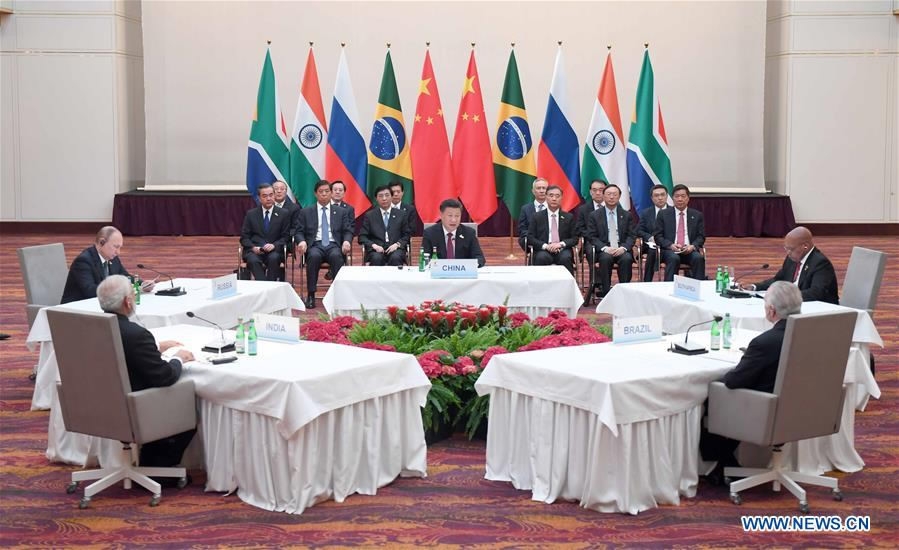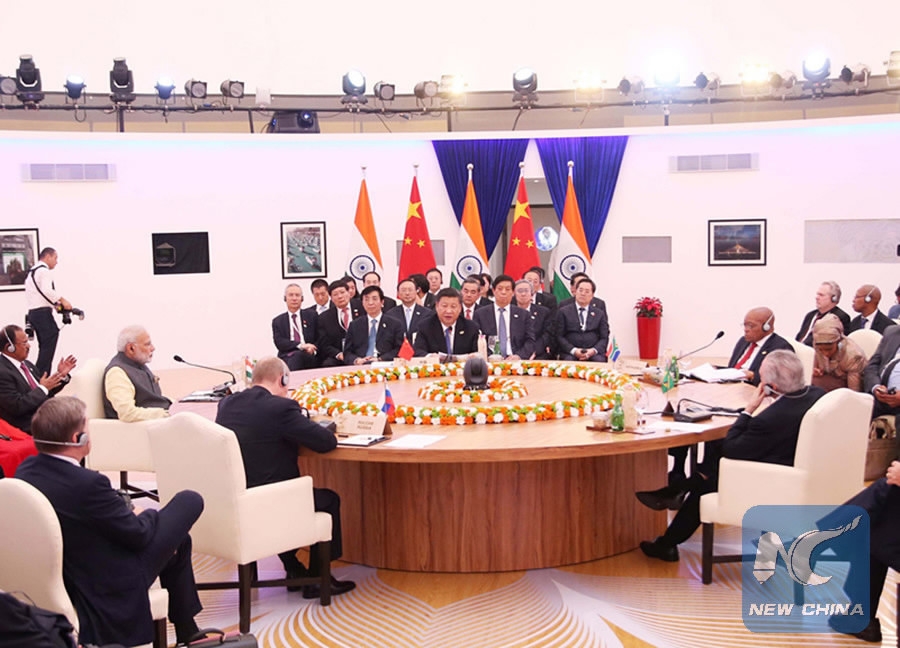
Politics
18:57, 28-Aug-2017
Expert lauds BRICS achievement in its 20th year
By Su Yuting

Since their first foreign ministers' meeting in 2006, BRICS countries have seen 10 years of rapid expansion in trade and the economy. As China assumes the rotating presidency from India and prepares for the leaders' meeting in Xiamen this September, BRICS is ready to usher in its second decade.
How much has been achieved since the Goa summit last year? How are emerging economies set to change the world in the future?
Wang Wen, executive dean of Chongyang Institute for Financial Studies at Renmin University, said that the five countries of BRICS have made great strides over the past year through uniting to push for reform of international trade and institutions, notably the IMF reform.
“We united for the next wave of economic globalization, and to give trust and confidence to the international society," Wang added.
The BRICS countries represent an influential voice on the global stage, and the association helps to deliver direct benefits to their people. That's what leaders from all five BRICS countries said at last year's Goa Summit.

Chinese President Xi Jinping presides over an informal leaders' meeting of the emerging-market bloc, which groups Brazil, Russia, India, China and South Africa, in Hamburg, Germany, July 7, 2017. /Xinhua Photo
Chinese President Xi Jinping presides over an informal leaders' meeting of the emerging-market bloc, which groups Brazil, Russia, India, China and South Africa, in Hamburg, Germany, July 7, 2017. /Xinhua Photo
The eighth BRICS summit was held under the theme of "Building Responsive, Inclusive and Collective Solutions”. And one of the most important outcomes from the meeting was the Goa Declaration. This includes new ideas such as stronger cooperation on anti-terrorism and a stronger focus on areas such as education, urban development, public health, and infrastructure.
The Goa Declaration also pointed to several measures to reduce non-tariff barriers to facilitate trade among the BRICS countries. Leaders also welcomed experts exploring the possibility of setting up an independent BRICS Rating Agency based on market-oriented principles, something that they hoped would improve global governance.

Chinese President Xi Jinping speaks at the eighth BRICS summit in Goa, Oct. 16, 2016. Xinhua Photo
Chinese President Xi Jinping speaks at the eighth BRICS summit in Goa, Oct. 16, 2016. Xinhua Photo
Over the years, the fortunes of the BRICS may have risen or fallen, and each BRICS country faces its own challenges. While some observers have doubted the development momentum of the BRICS countries, many analysts said it will become increasingly clear that closer cooperation among these developing will have a positive impact on global order.
IMF data shows that over the past 10 years, BRICS' contribution to world economic growth has exceeded 50 percent. Those involved in BRICS believe as long as the five countries stay united, the organization will remain effective.
According to Wang, BRICS can become a new engine for globalization. He said the countries should launch changes to the global economic governance system, and innovate in economic growth patterns in a green, inclusive and creative manner.
1723km

SITEMAP
Copyright © 2018 CGTN. Beijing ICP prepared NO.16065310-3
Copyright © 2018 CGTN. Beijing ICP prepared NO.16065310-3